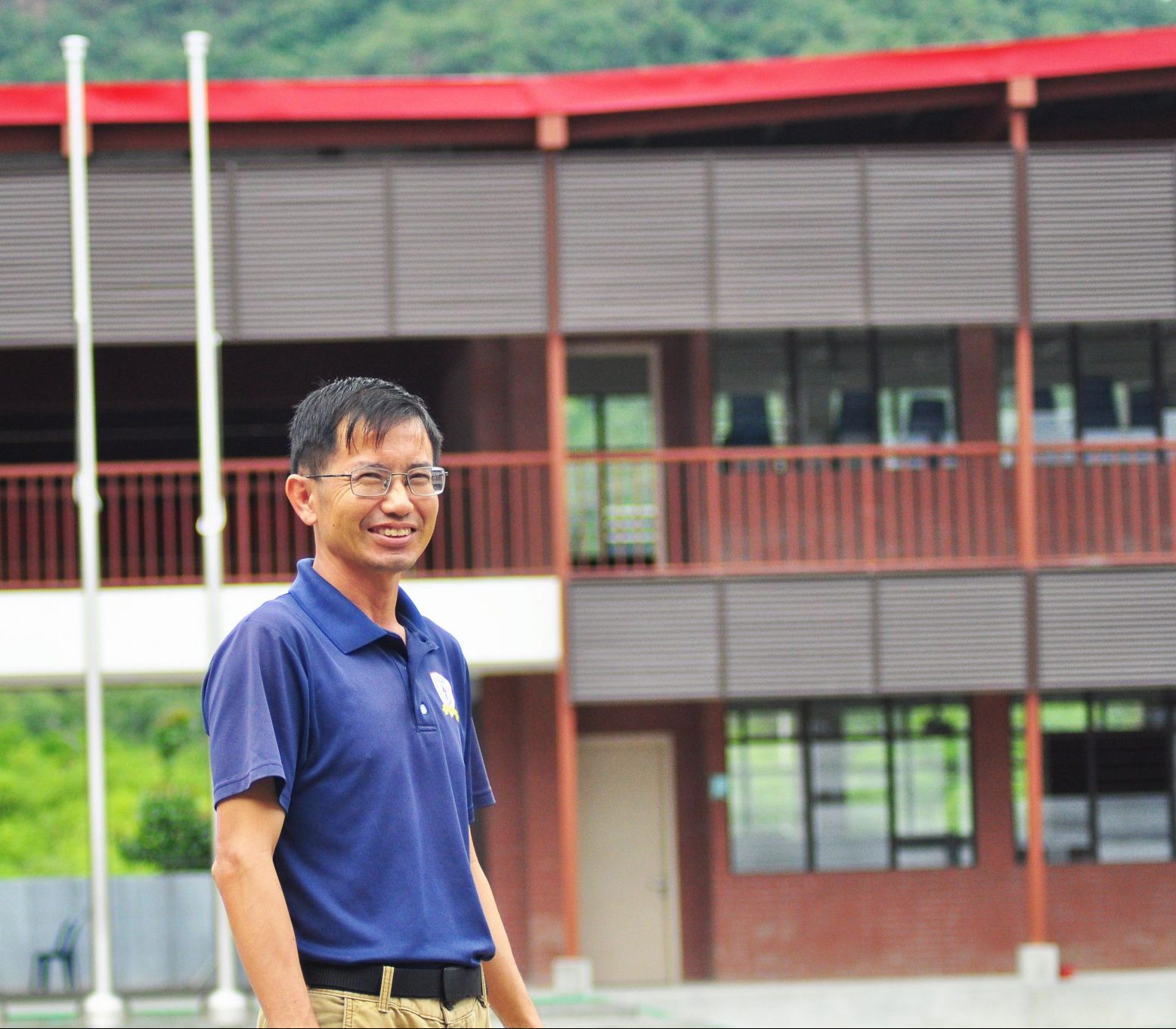“We don’t stop being humans when we become Christians”: Why creation care matters more than you think
by Rachel Phua // October 24, 2019, 10:44 am

Katong Presbyterian Church has done away with using disposables for community meals, putting in place a dish-washing system. Photo from Katong Presbyterian Church's Facebook group.
Creation care isn’t automatically linked with the Gospel, but reusing that paper cup or refusing to take that extra plastic bag might have more to do with your relationship with God than you think.
At The Justice Conference Asia 2019, addressing environmental justice was one of the topics up for discussion. National director of the Singapore Centre for Global Missions Lawrence Ko, climate scientist Benjamin Grandey, and Katong Presbyterian Church senior pastor Lam Kuo Yung helmed a four-session workshop on the second day of the conference.
That Christ came to save “miserable souls” is a creed well-imbued among Christians, said Ko, but also rather anthropocentric.
Instead of seeing how salvation is “all about me, myself and I”, Christians must recover a theocentric view of God – a grasp that God is the Creator, restoring His masterpiece after the fall, Ko explained. And as the Imago Dei, we are co-workers in His plan to redeem the whole of creation, not just its people.
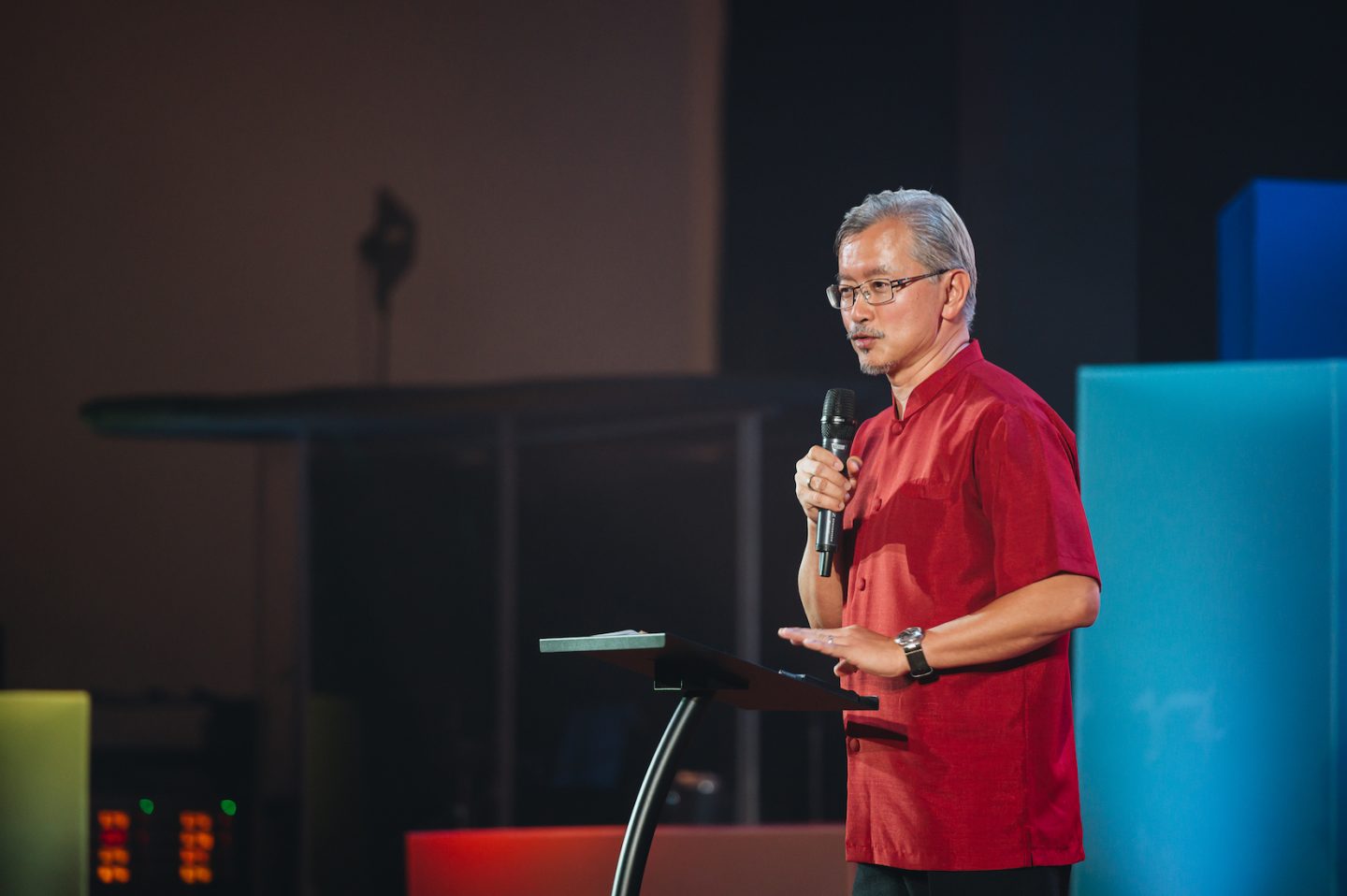
Pastor and missiologist Lawrence Ko spoke on the theology behind creation over two days. Photo courtesy of The Justice Conference Asia.
“We don’t stop being humans after becoming Christians,” added Lam, citing theologian Christopher Wright. “God will hold us accountable for our humanity as much as for our Christianity. For there are things we have been commanded by God to do as human creatures.”
So here are three reasons why, as Christians, we should take creation care seriously:
1. It is a discipleship issue
Discipleship does involve studying the Word, but it also goes beyond the classroom and we need to put everything we learnt into practice, said Lam.
God has called us to grow in maturity and this involves every aspect of the kingdom God gave to us (Colossians 1:10).
Being considerate of how our everyday behaviour affects the earth is a form of denying ourselves (Mark 8:34). For many, it takes willpower and sacrifice to portion out 10 minutes every day to sort your rubbish, for example.
“Do you love money or do you love God?”
Time and comfort zone aside, some might argue that leading a sustainable lifestyle is too expensive.
“Then the question I ask myself is: ‘Do I love money or do I love God?’” said Grandey.
Not that he’s convinced it costs more to be environmentally friendly. Driving – especially in Singapore – is generally pricier than taking public transport and produces more emissions generally. Or for that matter, the carbon footprint of a business class passenger is at least three times that of someone in economy.
And if you buy fewer gadgets or less clothes, you will definitely save money, and possibly the planet.
The lowdown: Faith without works is dead (James 2:17)
2. It is a missional issue
If you care about the farmers in Bangladesh or the villagers in the Philippines, then combating climate change should very much be up your alley, said Grandey.
The people most impacted by the issue are the poor and vulnerable, as their livelihood is upended by deforestation, pollution and extreme weather events.
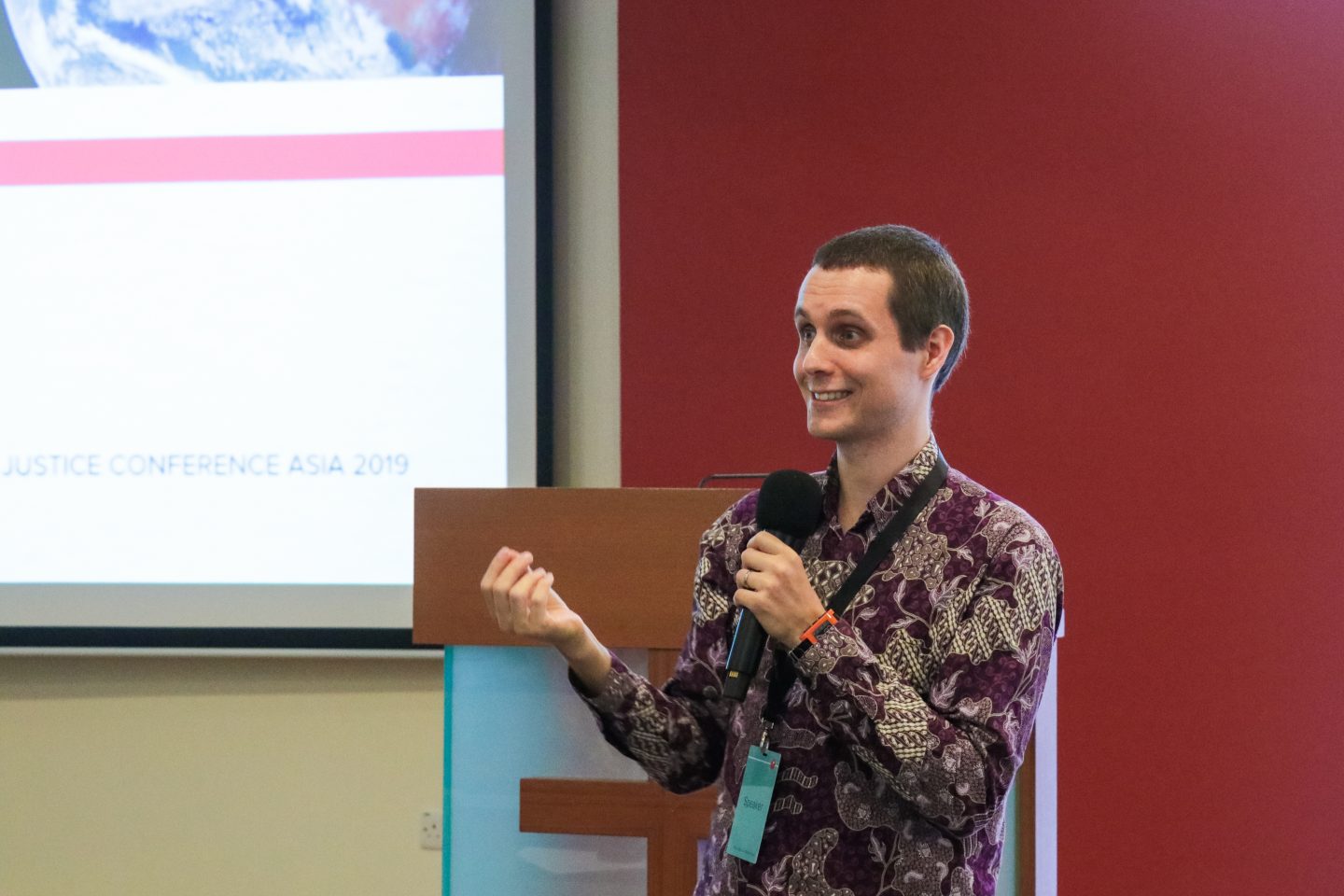
Climate scientist Benjamin Grandey on how individuals can make “meaningful choices” every day that, though small, bring hope to a broken world. Photo courtesy of The Justice Conference Asia.
Even planting a tree in your backyard – or your church – is the work of a missionary. “Creation care is about men taking care of trees, and the trees in turn take care of more men,” said Lam.
“That’s an indirect way of saying you are loving your neighbours.” (Mark 12:31).
Neither has the Great Commission called us to evangelise just with our tongues; our actions matter just as much too. We have been asked to teach others to “obey” (Matthew 28:20 NIV), he said, not “to know everything that God has commanded”.
The lowdown: Christians have been called to many roles: Peacemakers (Matthew 5:9), harbingers of hope (Matthew 25:40; Matthew 10:8), salt and light (Matthew 5:13-16), ministers of reconciliation (2 Corinthians 5:18).
3. It fosters community
When Katong Presbyterian Church was planning to renovate their entire building, Lam decided that he wanted every member of the congregation involved in it, even if it took longer than necessary.
“Usually a renovation takes two to three years, but we took seven years,” he said. They had meetings after meetings for the members to sit down and discuss how they wanted the new development to look like and how the structure itself could reflect the church’s values. It took a while to get the members’ buy-in but the leaders were committed.
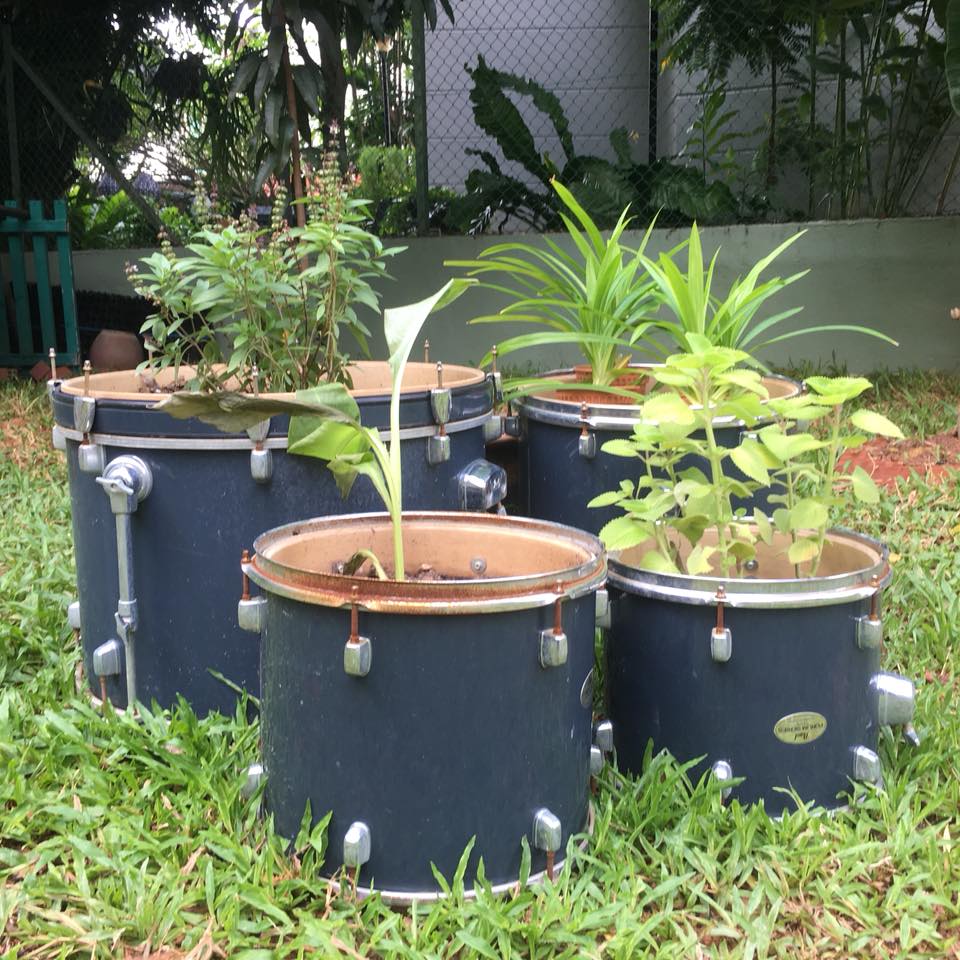
Katong Presbyterian Church turned some of their old drums into pots for plants in their garden. Photo from Katong Presbyterian Church’s Facebook group.
During the renovation process, the members also stepped in to paint the walls and redecorate the place. And they were fine even when not everything was brand-new. Pews were turned into wood for new furniture; library shelves were made up of wine crates and they spruced up the children’s area with second-hand furniture.
Why did they choose to take their time? If decisions were made only at the top, then this treats the parish like consumers. Because everyone in church was engaged with the process, the leaders didn’t get a single complaint afterwards.
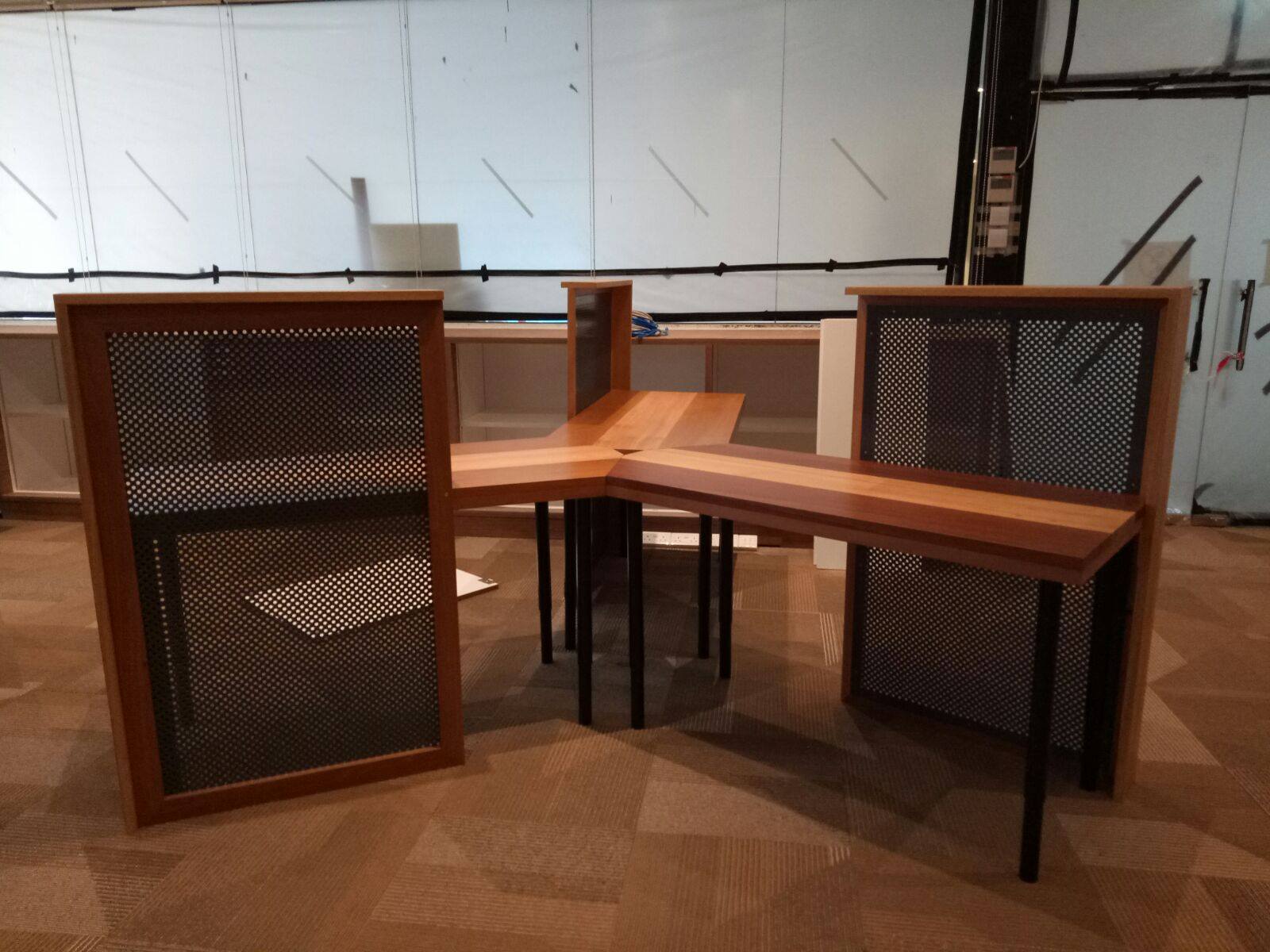
Old church pews were turned into furniture in the church’s aim to be more responsible custodians of creation. Photo from Katong Presbyterian Church’s Facebook group.
Instead, they got a church family that was closer to one another and individuals who better understood the church’s values.
The lowdown: Getting the congregation to brainstorm practical environmental solutions starts friendships and builds stronger bonds (Hebrews 10:24-25; Ephesians 4:3)
How to start being an earth-loving Christian
Referring to a 2012 statement by the Lausanne Movement, Ko reiterated the 10 ways it said churches and leaders can respond:
- Go back to living simply.
- Have a new and robust theology that embeds the theology of creation care.
- Leaders from the Global South must speak up.
- Mobilise the whole Church and utilise the gifts of expertise of every individual.
- Missions to unreached people groups with a focus on environmental work.
- Conceive and execute radical ideas that confront climate change.
- Produce food sustainably.
- Develop an economy that works in tandem with God’s creation.
- Encourage local expressions of creation care.
- Embolden environmental advocacy and legal action.
On a practical level, Lam gave several examples of how the local body can work in creation care practices, drawing from his experience leading Katong Presbyterian Church.
“Christian discipleship is lived out in the small decisions of everyday life.”
The church decided to start a farm at around the same time they began the renovation. They grew vegetables and fruit that would be used for their Thursday night community dinners that welcomed foreign students and the homeless alongside their own members. They also implemented a dish-washing system as they stopped using disposables for meals.
To get their own members in touch with nature, the church organised nature walks as part of their programmes.
What about churches who don’t have their own property? Lam said they should then focus on how to reduce waste and rethink which activities can include an element of nature in them.
As for the individual, aside from reducing the amount of things we buy and reexamining our mode of transport, our diets matters too, Grandey pointed out. No one’s asking you to go vegetarian, but beef does have a larger environmental footprint compared to chicken. Are you able to cut down on your consumption of beef while having the occasional steak, he asked.
“Christian discipleship is lived out in the small decisions of everyday life,” he said. “We should start small, but dream big.”
We are an independent, non-profit organisation that relies on the generosity of our readers, such as yourself, to continue serving the kingdom. Every dollar donated goes directly back into our editorial coverage.
Would you consider partnering with us in our kingdom work by supporting us financially, either as a one-off donation, or a recurring pledge?
Support Salt&Light